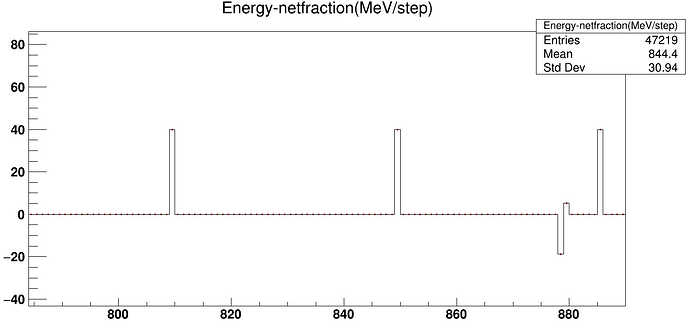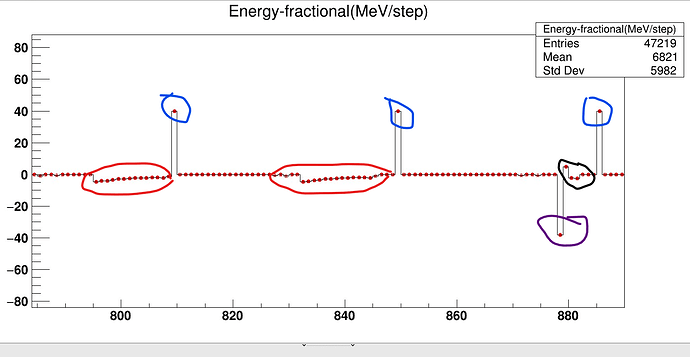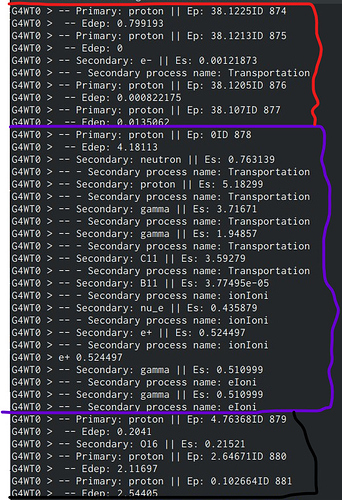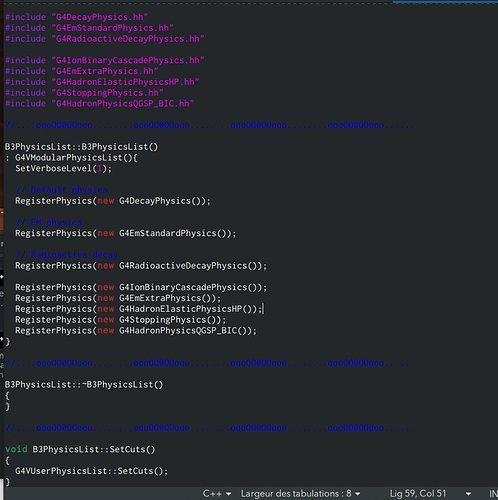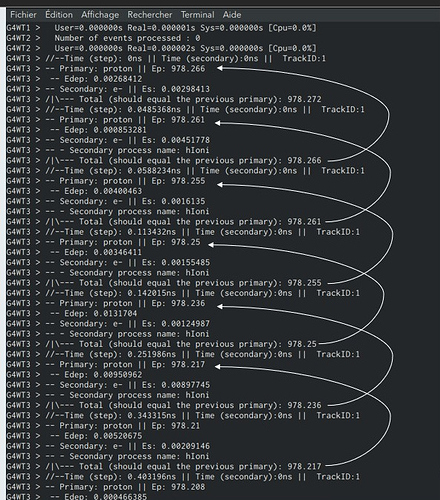I am firing 40MeV protons into a skull and brain phantom.
My energy deposition and secondary energies are lower than the primary energy of the proton for a specific interaction, where the proton seems to lose some energy.
Please view the following images.
Interaction : (38.107MeV) p + volume = (5.18MeV) p + n + 4 gammas + C11 + B11 + nu_e + volume + ~4MeV of energy deposit.
The netfraction plot shows the net change in energy between every step (the 40MeV peaks are due to new protons firing). Clearly the dip at around 879 is incorrect.
This plot is generated in my SteppingAction, where if the primary is a proton, I log the (change in primary energy + the energy deposit + the kinetic energy of all generated secondaries) every step.
The 5.18 MeV subpeak is due to my code misclassifying the scattered proton in the interaction as another primary.
The fractional plot is simply the (change in primary energy every step), also logged at the same place in the SteppingAction.
The red areas indicated normal decay trails, and the blue areas indicate new protons. The purple indicates the conservation violating interaction, while the black is the scattered proton and its decay (since my code considers it a new primary).
This is my log (also in Stepping Action):
The color scheme is the same as before.
Ep is primary energy, Es is secondary energy, and Edep is the GetTotalDeposit().
Clearly (in the purple area) the secondaries do not add up to ~ 38.107 MeV.
The black is the scattered proton.
I suspect my Physics List, so I have attached it for your reference.
Thank you.
